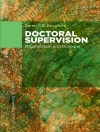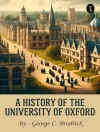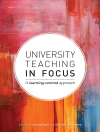Demands for excellence and efficiency have created an ableist culture in academia. What impact do these expectations have on disabled, chronically ill and neurodivergent colleagues?
This important and eye-opening collection explores ableism in academia from the viewpoint of academics’ personal and professional experiences and scholarship. Through the theoretical lenses of autobiography, autoethnography, embodiment, body work and emotional labour, contributors from the UK, Canada and the US present insightful, critical, analytical and rigorous explorations of being ‘othered’ in academia.
Deeply embedded in personal experiences, this perceptive book provides examples for universities to develop inclusive practices, accessible working and learning conditions and a less ableist environment.
Table of Content
Introduction: Being ‘different’ in academia ~ Nicole Brown
PART I: Ways of knowing
A leg to stand on: irony, autoethnography and ableism in the academy ~ Laura L. Ellingson
“There’s no place for emotions in academia”: experiences of the neoliberal academy as a disabled scholar ~ Angharad Butler-Rees
Embodiment and authenticity: how embodied research might shed light on experiences of disability and chronic illness ~ Jennifer Leigh
What’s in a word? Rephrasing and reframing disability ~ Sharon Smith
Intermezzo
PART II: Lived experiences
Colour blindness in academia: the challenges of an invisible impairment ~ Oliver Daddow
Stammering in academia: voice in the management of self and others ~ Robert H. Mann and Bryan C. Clift
Losing my voice (physically and metaphorically) ~ Jeanne Barczewska
Deafness and hearing loss in higher education ~ Nicole Brown
Living with collagenous colitis as a busy academic: chronic illness and the intersection of age and gender inequality ~ Rosalind Janssen
Three cheers for Access to Work partnership: two cheers for Two Ticks and one question about a university-wide self-disclosure scheme ~ Chris Mounsey and Stan Booth
“I’m not saying this to be petty”: reflections on making disability visible while teaching ~ Emma Sheppard
#Autistics In Academia ~ Chloe Farahar and Annette Foster
“I’ve always wanted to be a nurse …”: challenging academic ableist assumptions ~ Jo Sullivan
Ableism in music academicism ~ Ben Lunn
Teaching with and supporting teachers with dyslexia in higher education ~ Jennifer Hiscock and Jennifer Leigh
Depressed academics: building a group blog community ~ Mikael Vejdemo- Johansson and Ian P. Gent
Cancer, bereavement and work ~ Nicola Martin
Invisible disabilities and (re)negotiating identity: life after major traumatic injury ~ Clare Lewis
Conclusion: Disability imaginary of the future ~ Nicole Brown
About the author
Nicole Brown is Associate Professor at University College London and Director of Social Research & Practice and Education Ltd.












